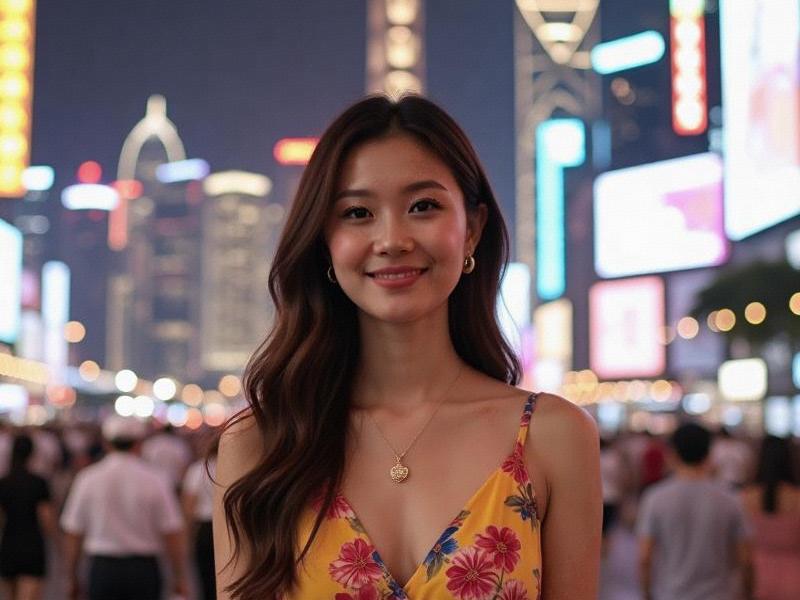This investigative feature explores Shanghai's evolving high-end entertainment club scene, examining how these establishments blend traditional Chinese hospitality with cutting-edge global trends to crteeaa unique nightlife ecosystem that drives the city's "night economy."

The glowing neon sign above Mint Club's entrance pulses like a heartbeat, its reflection shimmering in the rain-slicked pavement of Shanghai's Bund financial district. Inside, a mix of Chinese entrepreneurs and expat bankers sip bespoke cocktails infused with baijiu and goji berries while a DJ seamlessly blends traditional guzheng melodies with deep house beats. This is contemporary Shanghai nightlife - where East meets West in venues that have become as much about business networking as entertainment.
Shanghai's entertainment club industry has undergone a remarkable transformation since 2020. What began as simple KTV (karaoke) venues and banquet halls has evolved into a sophisticated $3.2 billion night economy sector featuring multi-concept entertainment complexes. The current landscape reveals three distinct tiers:
1. Ultra-Luxe Business Clubs
Venues like Xintiandi's Muse Club and Pudong's Cloud Nine cater to Shanghai's elite, with annual membership fees reaching ¥500,000 ($70,000). These establishments offer soundproofed negotiation rooms adjacent to champagne bars, blending entertainment with deal-making. At Cloud Nine's recent blockchain investors' night, over ¥800 million ($112 million) in deals were reportedly brokered between cryptocurrency entrepreneurs in private singing rooms equipped with AI-powered translation systems.
上海龙凤419社区
2. Theme-Based Experience Centers
The past two years have seen the rise of immersive venues like Galaxy Theatre Restaurant in Jing'an District, where patrons enjoy Cantonese banquets while watching acrobatic performances suspended from 15-meter ceilings. Similarly, the newly opened "1930s Shanghai" nostalgia club in Hongkou transports guests back to the Jazz Age with period-accurate decor, costumes, and even historically inspired cocktails served in antique teacups.
3. Hybrid KTV-Lounge Concepts
上海花千坊龙凤 Modern iterations like Party World's flagship on Nanjing Road have revolutionized the traditional KTV model. Their VIP rooms now feature 360-degree projection mapping, AI duet partners, and even health monitoring systems that suggest song choices based on vocal cord strain detection. "We're selling experiences, not just rooms," explains manager Liu Wei, noting a 140% increase in corporate bookings since adding holographic meeting capabilities.
The municipal government's "24-Hour City" initiative has actively supported this evolution. Since 2022, over 300 entertainment venues have received subsidies to extend operating hours, while special nightlife districts like Found 158 have been granted exemptions from noise ordinances. The economic impact is staggering - Shanghai's night economy now accounts for 14% of total consumer spending, with entertainment clubs generating ¥28 billion ($3.9 billion) annually in direct revenue.
Cultural fusion defines Shanghai's club scene mixology programs. At Speak Low - recently voted Asia's best bar - mixologists deconstruct traditional Chinese medicines into artisanal cocktails. Their signature "Shanghai Nostalgia" blends chrysanthemum-infused gin with aged pu'er tea and a whisper of Sichuan peppercorn smoke. Meanwhile, high-end KTVs like New York Star employ "flavor sommeliers" who pair songs with specific teas and snacks to enhance vocal performance.
上海花千坊419
Technology integration reaches astonishing levels. Face-pay systems have replaced membership cards at 87% of upscale clubs, while blockchain-based point systems allow patrons to redeem earnings across multiple venues. The most exclusive clubs now use emotion-reading AI to adjust lighting and music based on guests' micro-expressions captured by discreet ceiling cameras.
The industry faces challenges, particularly in staffing. Demand for "entertainment consultants" - hybrid host/sommeliers who guide guests through experiences - far outstrips supply. Top graduates from Shanghai Theatre Academy's nightlife management program command starting salaries of ¥35,000/month ($4,900), comparable to entry-level bankers. Meanwhile, strict licensing procedures mean new venues often wait 11 months for approval.
As dawn breaks over the Huangpu River, cleaners tidy up at Mao Livehouse while delivery robots restock bars along Julu Road. Shanghai's entertainment clubs aren't just surviving the post-pandemic era - they're thriving by reinventing what urban nightlife can be. In doing so, they've created a blueprint that nightlife districts from Tokyo to Dubai are beginning to emulate.